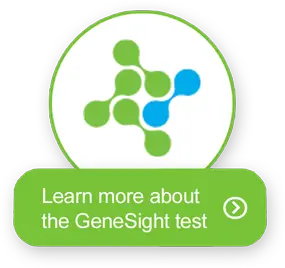 For many people struggling with depression, their experiences are remarkably similar. They find it difficult to get out of bed. They are exhausted, not interested in making an effort, or unable to even think about getting help.
For many people struggling with depression, their experiences are remarkably similar. They find it difficult to get out of bed. They are exhausted, not interested in making an effort, or unable to even think about getting help.
Taking that first step to getting better feels impossible.
In fact, a new Kaiser Permanente study found that many people with depression are not getting the help they need; only about a third of patients start taking antidepressants or receiving talk therapy after a depression diagnosis.
If dealing with depression is bad, NOT dealing with it can be even worse — both physically and emotionally.
Depression can negatively influence your health and life. Understanding the consequences can provide an incentive to schedule an appointment with a doctor and start treatment.
1. Serious (Additional) Health Issues
Depression and pain share a similar pathway in the brain, which is why people with depression also may experience everyday aches and pains — headaches, backaches, stomachaches, and joint and muscle aches. In fact, people with these symptoms may go to the doctor and learn that they have depression (read more about that here). If you are experiencing any of these symptoms, you should discuss them with your physician.
Additionally, depression can raise your risk for other chronic diseases such as cardiovascular disease, diabetes, Alzheimer’s, stroke, and more. The link isn’t entirely understood. However, people with depression are often less likely to engage in physical activity or stick to a healthy diet and sleep schedule which contribute to overall wellness and feeling healthy, said Kevin Chapman, Ph.D., a licensed psychologist in Louisville, Kentucky.
2. Relationship Trouble

“Depression has a profound impact on not just you, but also on those who you care about and interact with. It affects the quality of life for you andthose around you,” said Dr. Chapman.
A study by University of Waterloo psychologist Uzma Rehman and colleagues (2015) showed that “people who have major depressive disorder (the clinical form of depression) have higher levels of distress in relationships, feel that their marriages are less satisfactory, and become unusually upset when problems develop in their relationships.”
However, Psychology Todaywrites that depression is a treatable condition “as long as you are sensitive to [its] role in your relationship quality. Things may seem to be going downhill due to your bleak assessment of your life; as such a negative mood continues, what seems to be problems may evolve into actual problems. If you can intervene before that happens, you’ll be better able to redraw the map on your relationship so that it heads in a favorable direction.”
3. Lack of Productivity
Depression robs you of your motivation. In fact, you may find that you’re unable to perform your usual tasks, whether assignments at work or chores at home. This is because, as depressive symptoms increase, productivity typically decreases. This can have a significant impact on your job and your ability to complete your usual amount (or quality) of work.
All of this adds up. According to Mental Health America, depression can cost more than $51 billion in absenteeism from work and lost productivity.
4. Alcoholism or Drug Dependency
The connection between depression and alcohol or drug dependencies goes both ways, said Leonard Doerfler, Ph.D., an adjunct professor of psychology at the University of Massachusetts Medical School.
“People who abuse alcohol or drugs are more likely to become depressed, and those who are depressed are more likely to turn to these substances in order to cope with their feelings,” said Dr. Doerfler.
According to a 2014 National Survey on Drug Use and Health, 7.9 million people in the U.S. experienced both a mental disorder and substance use disorder simultaneously. This dual diagnosis results in a treatment program that often first starts with detoxification and withdraw, then moving to a mental health treatment plan.
5. Suicide
Tragically, suicide claimed the lives of about 45,000 people in 2016 in the United States, according to the National Institute of Mental Health.
“There is a link between depression and suicide,” said Dr. Doerfler. “Fortunately, most people who are depressed are not thinking of killing themselves, and when they do, only a small portion of those people follow through.”
If you’re having suicidal thoughts, call the 24/7 National Suicide Prevention Lifeline at 1-800-273-8255 or visit www.suicidepreventionlifeline.org.
Depression Treatment Can Help
Finding the right treatment for depression could help in numerous ways. “Not only do people feel better, but they go back to doing things that are important in their lives, like spending time with family and friends,” said Dr. Doerfler.
Reaching out to your doctor is the first step toward a happier, more fulfilling life. He or she may direct you toward talk therapy with a psychiatrist, psychologist, or other mental health professional. Your doctor can help you find the right medication to treat the condition.
In addition to following through with treatment for depression, it’s also important to focus on self-care. Make room in your routine for exercising, eating a healthy diet, and participating in activities that you enjoy.
If you ever feel like your symptoms are worsening, let your doctor know. Together, you can rethink your strategy for fighting depression.
You can read about other people who have overcome their depression struggles at https://genesight.com/stories/. To read more about this topic, please read our blog post at https://genesight.com/blog/patient/five-things-you-can-do-to-manage-depression-symptoms/.
Our articles are for informational purposes only and are reviewed by our Medical Information team, which includes PharmDs, MDs, and PhDs. Do not make any changes to your current medications or dosing without consulting your healthcare provider.
The GeneSight test must be ordered by and used only in consultation with a healthcare provider who can prescribe medications. As with all genetic tests, the GeneSight test results have limitations and do not constitute medical advice. The test results are designed to be just one part of a larger, complete patient assessment, which would include proper diagnosis and consideration of your medical history, other medications you may be taking, your family history, and other factors.
If you are a healthcare provider and interested in learning more about the GeneSight test, please contact us at 855.891.9415. If you are a patient, please talk with your doctor to see if the GeneSight test may be helpful.






